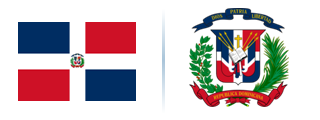Last Update: September 2025


| International Covenant on Economic, Social and Cultural Rights | International Convention on the Elimination of all Forms of Racism | Convention on the Rights of Persons with Disabilities | Convention on the Elimination of all Forms of Discrimination against Women | Convention on the Rights of the Child | International Convention on the Protection of the Rights of All Migrant Workers and Members of their Families | Constituent Agreement of the Development Fund for Indigenous Peoples in Latin America and the Caribbean |
| 4 January 1978 | 25 May 1983 | 18 August 2009 | 2 September 1982 | 11 June 1991 | 15 February 2026 | 15 February 2026 |
| View details | View details | View details | View details | View details | View details | View details |
Year of Latest Observed Constitution |
Social Housing |
Work and Social Security |
Public Health |
Public Education |
Social Development |
Children and Adolescents |
Youth/Young Adults |
Women |
Older Persons |
Persons with Disabilities |
Afrodecendants and Indigenous Peoples |
Migrants |
| 2015 | ||||||||||||
| View details | View details | View details | View details | View details | View details | View details | View details | View details | View details | View details | View details |
Children and Adolescents |
Youth/Young Adults |
Older Persons |
Women |
Peoples with Disabilites |
Afrodescendants and Indigenous Peoples |
Migrants |
Public Education |
Work and Social Security |
Social Housing |
Public Health |
Social Development |
|
| Legal Instrument | Código para la Protección de Niños, Niñas y Adolescentes | Ley General de Juventud (Ley núm. 49) | Ley 352-98 - Conape | n.d. | Ley General de la Discapacidad | n.d. | Ley Nº 285-04: 'Ley General de Migración' (2004) | Ley Orgánica de Educación No. 66-97 | Codigo de Trabajo | Ley de Vivienda Social | Ley General de Salud Ley No. 42-01 | n.d. |
| Law | Law | Law | Law | Law | Law | Law | Law | Law | Law |
| Country | Dominican Republic |
| Main authority | Gabinete de Coordinación de Políticas Sociales |
| Year of creation | 2004 |
| Coordinating authority | Vicepresidente(a) de la República) |
| Members | * Secretario Administrativo de la Presidencia
* Secretaría de Estado de Educación * Secretaría de Estado de Salud Pública y Asistencia Social * Secretaría de Estado de Trabajo * Secretaría de Estado de Deportes, Educación Física y Recreación * Secretaría de Estado de la Mujer * Secretaría de Estado de la Juventud * Secretaría de Estado de Cultura * Secretaría de Estado de Educación Superior, Ciencia y Tecnología |
| Country | Dominican Republic |
| Main authority | Social Policy Coordination Cabinet |
| Year of creation | 2004 |
| Mission | Instancia de articulación de la formulación, ejecución, seguimiento y evaluación de los programas incluidos en el Sistema de Protección Social de República Dominicana, basado en tres ejes principales: programas de transferencias condicionadas, programas de inclusión económica y programas de desarrollo humano y social. Sus funciones consisten en: coordinar el proceso de formulación, ejecución y evaluación de las políticas sociales; diseñar, establecer y dar seguimiento a una agenda estratégica del sector social e informar al Presidente de la República sobre su evolución; conocer, atender y dar repuesta efectiva a la demanda social en las materias vinculadas a su ámbito de acción; recomendar al ejecutivo cursos de acción preventiva para problemas reales y potenciales que pudieren afectar el sector; analizar y hacer recomendaciones acerca de los asuntos de carácter general que tengan relación con las demás instituciones que lo integran; estudiar los temas que afecten la competencia de varios Ministerios vinculados al sector social y que requieran la elaboración de propuestas conjuntas, previa a su resolución. Su misión consiste en garantizar la efectividad y la eficacia de la estrategia y de las políticas sociales, articulando los programas y las acciones que en materia de demanda social formulen las instituciones que integran el Gabinete, enfocados en incidir en el desarrollo integral de las familias dominicanas que viven en situación de vulnerabilidad y en la reducción de la pobreza. |
| Incumbent | Francisco Antonio Peña (2020) |
| Population segment | Children and Adolescents |
Youth/Young Adults |
Older Persons |
Persons with Disabilities |
Women |
Migrants |
| Main protection mechanism | Consejo Nacional para la Niñez y la Adolescencia (CONANI) | Ministerio de la Juventud | Consejo Nacional de la Persona Envejeciente (CONAPE) | Consejo Nacional de Discapacidad (CONADIS) | Ministerio de la Mujer | Dirección General de Migración y Extranjería |
| Legal Instrument | Ley 136-03 Código para el Sistema de Protección y los Derechos Fundamentales de los Niños, Niñas y Adolescentes | Ley General de Juventud (Ley núm. 49) | Ley No. 352-98 sobre Protección de la Persona Envejeciente. | Ley 5 orgánica sobre igualdad de derechos de las personas con discapacidad | Ley Nº 285-04: 'Ley General de Migración' (2004) |
|
Technical-operational dimension | |||||||
| Unique Registry of Participants | Sistema Integrado de Administración Financiera /b | Sectoral Plan for Social Development | Transparence - system for accessing public information from the State | Integrated Social Information System |
Evaluation mechanisms for social programs |
|||
General |
Sectorial |
General |
Sectorial |
|||||
| Gabinete de Coordinación de Políticas Sociales | ||||||||